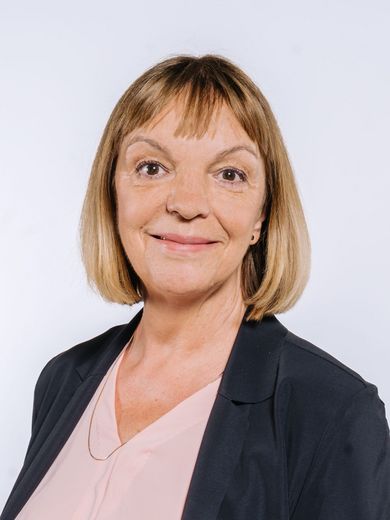
The UN Convention on the Rights of Persons with Disabilities (UN CRPD) has been in force for 15 years. As a signatory state, it obliges Germany to promote the equal participation of people with disabilities and to take appropriate measures to this end. It and other legal provisions of the federal and state governments impose an obligation to organise services in such a way that all people can participate in them on an equal and non-discriminatory basis. However, even 15 years after the UN Convention on the Rights of Persons with Disabilities came into force, the realisation of the rights of people with disabilities still does not have the necessary political priority in many places or is subject to resource constraints. "Human rights are non-negotiable, the expansion of inclusive structures in all areas of society must urgently move forward," said the State Disability Commissioner for Bremen, Arne Frankenstein, on Monday, 22 April 2024, at an event at Hochschule Bremen (HSB) on the topic of diversity. "The policy of small steps must be overcome in favour of real transformation, especially in view of the current crises."
The event at HSB was the start of a cross-university international Staff Week with around 40 participants from more than 15 European countries. There was an exchange on accessibility and inclusion at universities with best practice examples from Europe. The week of events on the topic of diversity was organised by the International Offices of University of Bremen, Constructor University and the Universities of Applied Sciences Bremen and Bremerhaven.
"The rights of people with disabilities have become more prominent in public awareness over the past 15 years, but there has been no fundamental shift towards an inclusive society," criticised the State Commissioner for Disabled People. In its state report review for Germany, the United Nations expressed concern that life outside of special structures is still not envisaged for many people today. They urge Germany to establish inclusive structures and to ensure the self-determination of people with disabilities.
"Accessibility is an important topic and a high priority at Hochschule Bremen," says Dr Sabina Schoefer, Vice President for Digitalisation, Change Management and Diversity. "Like all universities in Bremen, we are doing everything within our means. However, resources in the state of Bremen are disproportionately scarce - especially for this topic."
Last year, the HSB updated its current action plan for implementing the UN Convention on the Rights of Persons with Disabilities. With the 3rd action plan for the years 2023 to 2027, it is continuing its objectives and implementation measures, deepening them and qualitatively expanding the fields of action. In doing so, it is taking action in numerous areas, for example to make digital communication, studying and teaching as well as buildings and rooms as accessible and inclusive as possible. Some examples:
The Centre for Teaching and Learning (ZLL) at HSB offers comprehensive materials, advice and regular training courses for teachers on the topic of "digital accessibility", including AI-based tools. University and cross-university projects, such as "Barrier-free learning and teaching online" - BALLON or the AddInno project - "Integrated approach to digital innovation in studying and teaching", have created a framework for pursuing important goals from HSB's action plan and implementing them through appropriate measures. The requirements for an inclusive university are anchored in HSB's quality management and are systematically pursued.
At the beginning of 2021, the Institute for Digital Participation (IDT) was founded at HSB as an interdisciplinary institute of the Faculties of Computer Science and Economics. The aim of the institute is the equal participation of all people in the digital world. The IDT conducts scientific research with applicable results from practice for practice. The institute is also a good example of the empowerment of people with disabilities. Employees with and without disabilities work and conduct research at the IDT.
IGNITION is a research project of the STARS EU partners Hanze Groningen, Polytechnic Institute of Bragança (Portugal) and Hochschule Bremen together with the South East Technological University (SETU) in Waterford (Ireland). The aim of IGNITION is to provide HSB lecturers with concrete didactic tools and technological support to enable curricular teaching in international and hybrid settings. The acronym IGNITION stands for European DIGital Literacy Coalition for Inclusion, Collaboration aNd InnovaTION.
HSB has been working with eight international universities for several years to create a European University. The EU-funded network Strategic Alliance for Regional Transition European University - STARS EU for short - contributes to the sustainable transformation of the respective regions and thus of Europe through strategic networking and systematically interlinked cooperation formats in teaching, research and transfer.

Dr. Sabina Schoefer
Vice President Digitalisation, Change Management and Diversity
+49 421 5905 2208
Email